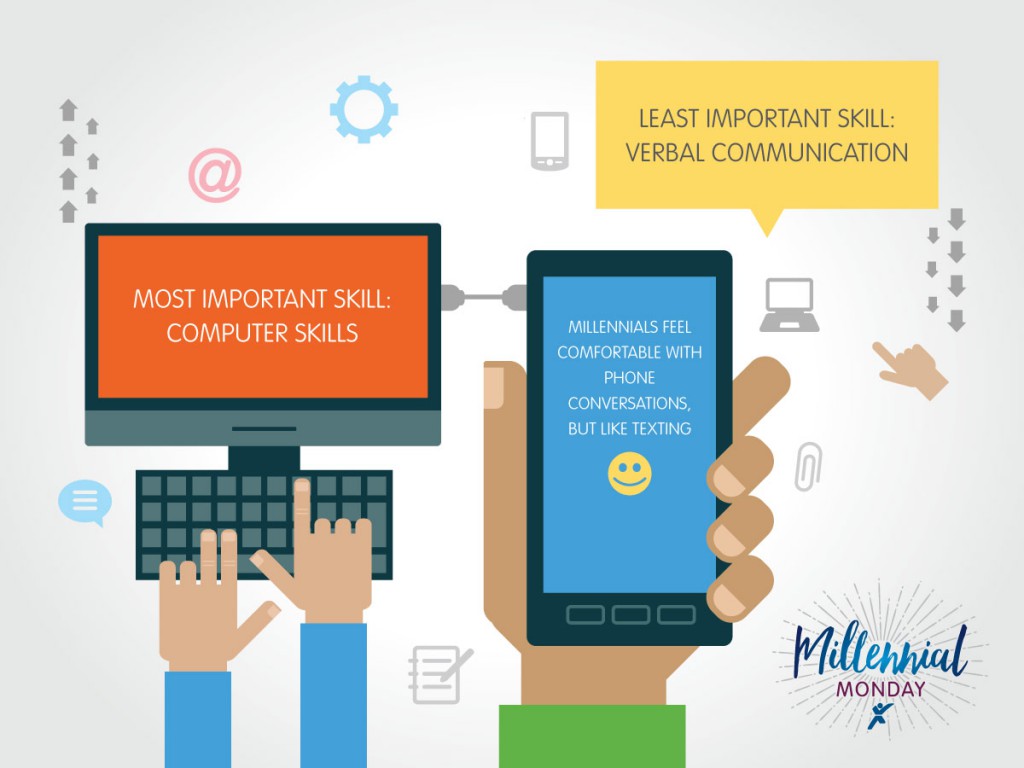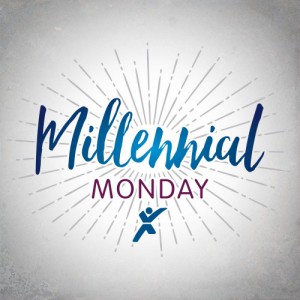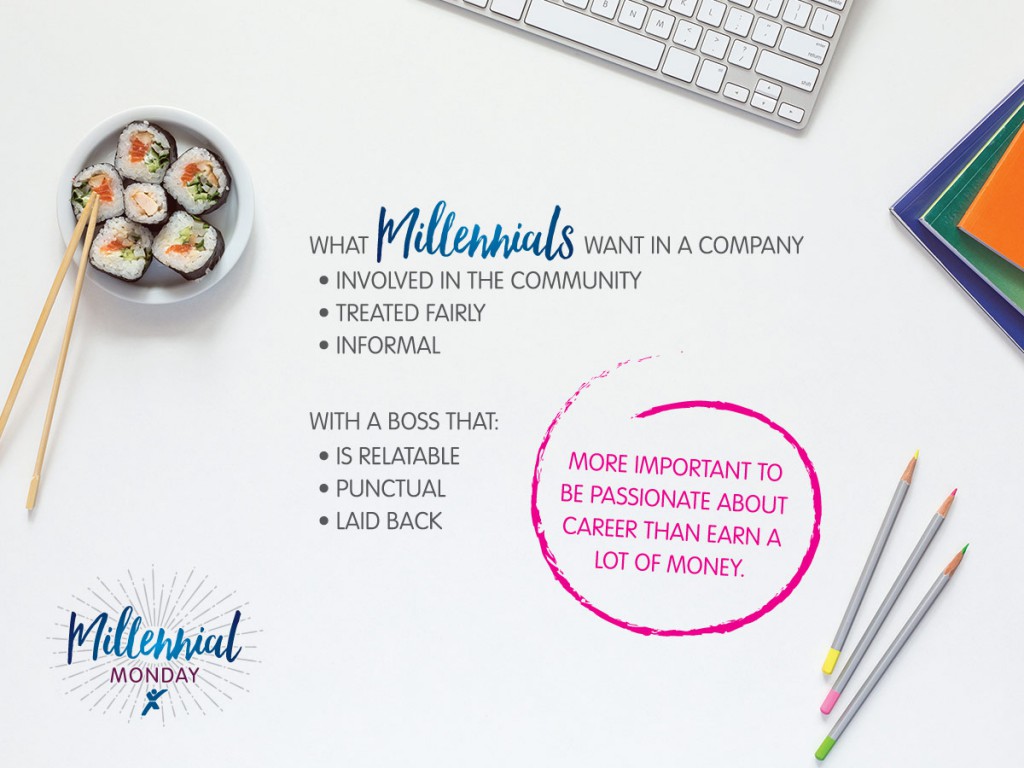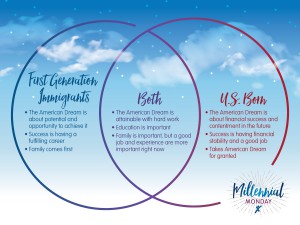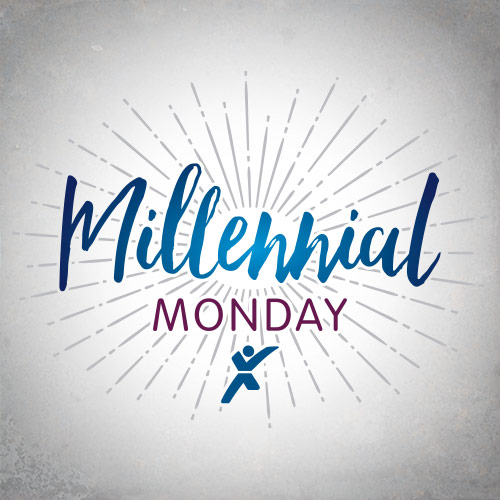 Express Employment Professionals recently teamed up with the School of Media and Strategic Communications at Oklahoma State University (OSU) in Stillwater, OK, to conduct research about Millennials and their attitudes toward the American Dream. Also known as “Gen Y,” Millennials were born between 1979 and 1995 and currently make up 30% of the population. As they enter the workforce and establish career paths, it’s important to understand the motives and desires behind this robust generation. To help you get to know “Gen Y,” Movin’ On Up is bringing you an eight-week series titled “Millennial Monday.”
Express Employment Professionals recently teamed up with the School of Media and Strategic Communications at Oklahoma State University (OSU) in Stillwater, OK, to conduct research about Millennials and their attitudes toward the American Dream. Also known as “Gen Y,” Millennials were born between 1979 and 1995 and currently make up 30% of the population. As they enter the workforce and establish career paths, it’s important to understand the motives and desires behind this robust generation. To help you get to know “Gen Y,” Movin’ On Up is bringing you an eight-week series titled “Millennial Monday.”
In this week’s installment of “Millennial Monday,” Express and OSU students surveyed Millennials, the majority of whom are working full- or part-time, to paint a picture of the generation’s use of technology and social media.
The Devices Millennials Use
It’s no secret that technology has taken over the workplace. From laptops to cell phones, it’s easy to spot technology almost everywhere you look. And no generation understands this technological craze quite like Millennials.
When asked which forms of technology they own, surveyed Millennials selected the following:
- Laptop – 91%
- iPhone – 63%
- Cell phone – 52%
- Tablet – 50%
- Desktop – 36%
- Fitness tracker – 22%
- Smartwatch – 6%
The majority of survey respondents (29%) reported spending 5 – 7 hours a day using those technological devices, followed by 37% who reported spending 8 – 10 hours a day.
Phone Calls Versus Text Messages
With the rise of smart phones, it isn’t a huge surprise that the Millennial generation prefers to interact in ways other than making traditional phone calls. In fact, 47% of respondents revealed they’d prefer to send someone a text message rather than call them. Only 18% prefer to make a call, and 33% remained neutral.
The Rise of Social Media
Social media is an important piece of communication for the Millennial generation, with 37% of those surveyed revealing they spend 2 – 4 hours a day on social media platforms. Of those platforms, the most popular include:
- Facebook – 95%
- YouTube – 78%
- Instagram – 58%
- Snapchat – 58%
- Twitter – 57%
- Reddit – 51%
- Tumblr – 16%
- Vine – 11%
Technological Availability
According to the results of the survey, technology is being introduced to users at a fairly young age. When asked at what age respondents began using technology, 72% selected age 13 or under. More specifically, 35% of Millennials surveyed reported using technology at age 10 or younger.
Despite the availability of technology and the fact that these results suggest a large amount of time spent on such devices, Millennials, for the most part, don’t believe they are overly dependent upon technology. In fact, 61% believe they are not.
How do you use technology in your work place or job search? Do you think your generation is too dependent upon technology? Share your thoughts in the comments section below!
Keep checking Movin’ On Up every Monday for more insight on this important generation.
Miss a week? Click the links below to check out previous topics in our series.
- First Generation Millennials and the American Dream
- Millennials and Money Management
- The Workplace Millennials Want
Movin’ On Up is brought to you by Express Employment Professionals.

